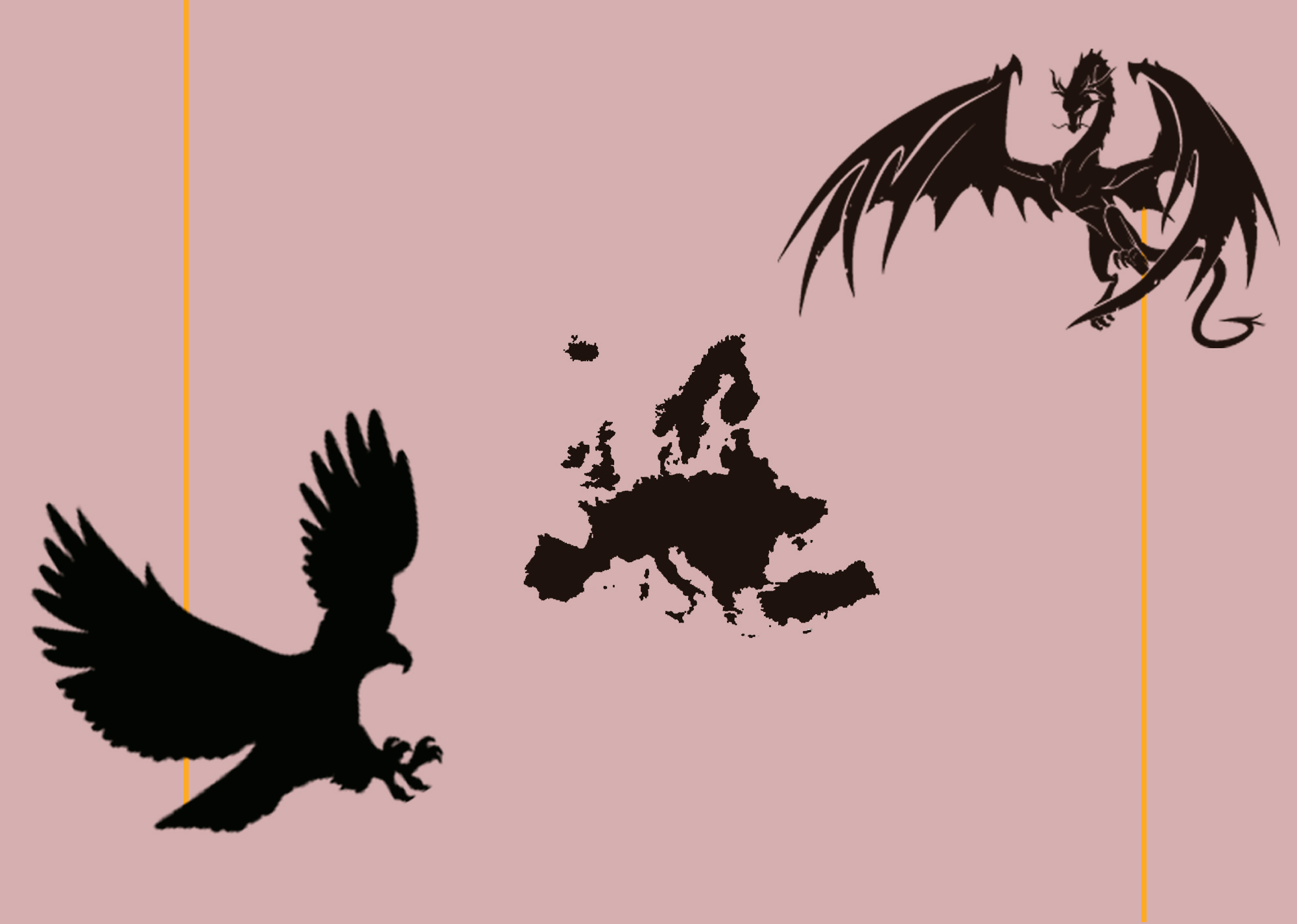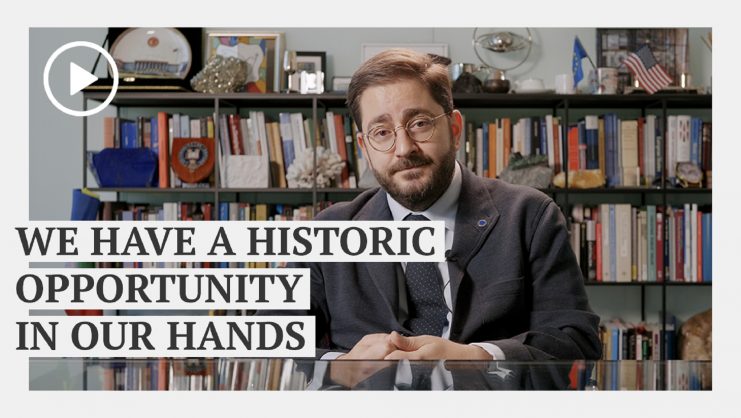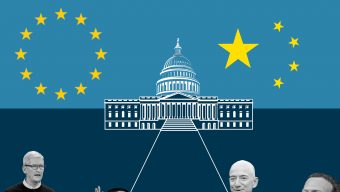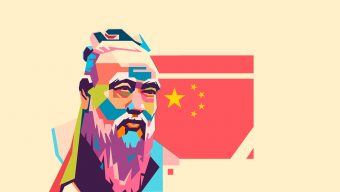Can Europe really play a leading role in the twenty-first century? Is it inexorably declining? The fact is that the last two decades have been disastrous for the European Union. In the early twenty-first century, the EU had an ambitious project of transforming itself into a supranational state with key assets to exert its influence in the world as a global power. But the failed European constitution, the last global financial crisis that led to a renationalization of Europe, and finally Brexit have seriously weakened the European project. What is worse is that Europe no longer has a narrative that unifies its people: it used to be peace and prosperity: but now it has failed to come up with a new narrative that motivates its people, particularly the new generation. Europe lives in a new era of multipolar disorder in which several emerging powers struggle for supremacy and challenge the principles of a global order which largely reflected its own principles that were deemed universal. It no longer has the means to defend this global order. Its main ally, the United States is retreating from the world stage, while an aspiring superpower, China, aspires at global hegemony with the support of nations of several powers that aim at expanding their power by challenging the Western world, in an increasingly dangerous zero-sum game.
Europeans are used to living in declining powers. We have lived in a post-European world since 1945. But, now we are facing the prospects of a post-Western world. This is mainly manifested by the rise of non-Western nations led by China. Napoleon described China as a sleeping giant. Now that it has woken up it has become the most serious challenge to the liberal international order. China is a civilization within a nation-state of 1.4 billion people determined to become “the center of the world”, as it used to be known. Benefitting from an open market that has allowed it to become the factory of the world, it has expanded its economy until in 2014, a crucial year in our contemporary history, it overtook the USA as the largest economy in the world. The West believed that incorporating China into the World Trade Organization would trigger a process of liberalization, and that an increasingly affluent Chinese population would demand democratization and this would lead to the end of the regime founded by Mao Tse Tung in 1949. But this has not been the case and the Western strategy of opening itself to China has proved to be a catastrophic mistake. At present, a communist state and a totalitarian dictatorship is becoming the largest economy in the world. It also has an ambitious plan of expanding its power at the expense of the EU and the USA. Under the so-called One Belt One Road initiative, a global infrastructure development strategy, it has expanded into Africa, South America and it is also infiltrating into south-eastern Europe. China has launched a much more ambitious and attractive program to help developing nations than that of the EU. While the EU demands human rights and democratization as conditions for granting aid to any country, China simply grants generous loans to all kinds of regimes without any political condition. As a result, an increasing number of popular democracies, authoritarian regimes, and failed states have fallen under China’s influence. Moreover, Xi Jinping’s regime insists on implementing the idea in the United Nations that no political system is universal: clearly defying the Western world’s principle that all peoples can live in democracy.
India is the other major symbol of the new post-Western world. The other civilization within a nation-state that we have in Asia is also a demographic giant, it has 1.38 billion people but it will soon be more populated than China whose own population is rapidly diminishing. India is another great factory of the world, the fact that it is an English-speaking democracy accounts for the successful internationalization that has allowed it to overtake the United Kingdom as the fifth economy in the world. Until the eighteenth century, China and India were the largest economies of the world. In the twenty-first century, we are increasingly returning to that geopolitical order in which Asia is richer than Europe and America, not only due to the rise of China and India, but also due to the success of the third-largest economy in the world: Japan and several smaller but very successful economies like South Korea, Taiwan, Indonesia, Thailand and Singapore. Whereas the power of Europe and the West was largely based on the fact that the Atlantic was the center of world trade from the sixteenth century, now this center is rapidly shifting towards the Pacific Ocean.
The USA, overwhelmed with its own internal problems and a public opinion that is fed up with foreign interventions, has been gradually withdrawing from the world.
Russia is the other destabilizing factor for Europe and the West. The real power of this vast country is more apparent than real. Its economy is not much larger than that of Spain but being a major producer of commodities, particularly gas, allows it to exert great influence on the EU, which is largely dependent on its gas imports. Russia’s once-imposing army is obsolete but sufficiently powerful to keep a country like Belarus as a satellite or prevent former Soviet countries like Ukraine and Georgia from joining NATO. Just as it happened with China, the West miscalculated Russia’s evolution after the collapse of the Soviet Union. Rather than evolving into the eastern side of Europe’s common house, under Vladimir Putin it has become an authoritarian regime determined to play in the league of the great powers by challenging EU’s and US interests at different levels. First in Eastern Europe, determined to retain its influence on all countries that once belonged to the Warsaw Pact. Secondly destabilizing democracies in the EU and the United States by infiltrating social media. Thirdly, by propping up regimes like Cuba, Venezuela, and Nicaragua, whose programs of socialism in the twenty-first century are contributing to weakening the cause of democracy and political stability in Latin America.
While all these powers expanded, Islamism remained a serious challenge to the Western world. The third major mistake made by Western analysts was that Islamism would decline before the twin forces of globalization: democracy and the market economy. This has proved to be false. Islamism has successfully expanded in Muslim countries more than ever. It has provided the key ideological basis for a new authoritarian regime, that of Recep Erdogan in Turkey, a key country for European interests. Ever since the 9/11 terrorist attack, radical Islamism has threatened security in the Western world or wherever Al Qaeda and ISIS terrorist groups managed to establish a platform. This led to the so-called war on terror, by which a US coalition of forces invaded Iraq and simultaneously began a twenty-year-long war against the Taliban forces in Afghanistan. The recent withdrawal from Afghanistan constituted a very symbolic defeat for both the EU and the USA. Within the EU borders, Islamism continues to threaten stability particularly by influencing the growing Muslim population.
On all these fronts where European and Western interests are challenged, Europe always relied on the military support of the USA and NATO, which was the most important symbol of Western cooperation since 1945. But the USA, overwhelmed with its own internal problems and a public opinion that is fed up with foreign interventions, has been gradually withdrawing from the world. This was dramatically stated during the Trump administration and has become a reality under the Biden administration, with the precipitated and shameful withdrawal from Afghanistan. Moreover, the USA under the Trump administration has lost the moral authority to lead the West. Wokeism and cancel culture undermine the values which made this great nation a beacon of the world. As the EU can no longer depend on NATO for its defense there is increasing demand for the development of its so-called strategic autonomy. Although it seems obvious that Europe needs to increase its defense capacity in view of a Hobbesian world order in which security is constantly threatened, the fact is that that this requires a new mentality and increasing resources that could only be used at the cost of reducing those allocated to public health, education, and pensions.
Europe is therefore increasingly on its own to face the rising dragon China and a series of powers that play a leading role in this new era of global disorder. There is always the temptation of focusing on cultivating one’s own garden, as Voltaire famously stated, and this is a very prosperous garden, for let us not forget that the European Union is the second-largest economy in the world and European nations are on the whole among the most highly developed in the world. But unlike the USA, Europe has Africa on the south and Asia on its eastern border and cannot afford isolation. Europe has the moral duty and the capacity to play a leading role in the twenty-first century, all that remains is for Europeans to get their act together.
© IE Insights.








